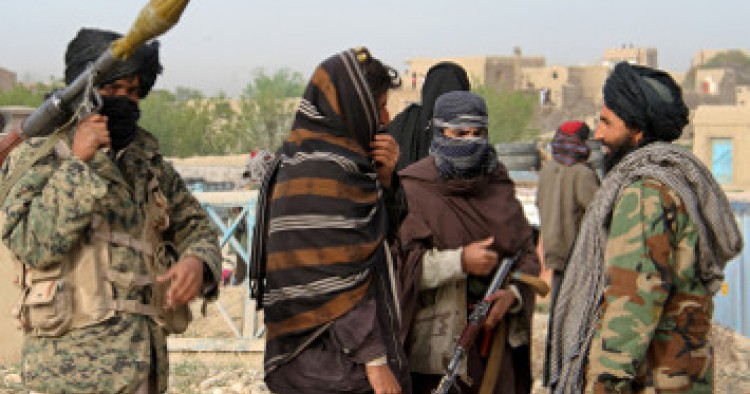Afghanistan’s Chief Executive Abdullah Abdullah has called for an investigation into the latest reports of the Iranian government’s ties with the Taliban, the Afghan media reports. According to Afghanistan’s 1TV, Abdullah, during his visit to restive Helmand Province, particularly stressed that the “issue of Iranians’ meeting with the Taliban should be investigated.” He also called on the authorities to probe the Taliban’s sources of funding.
The Afghan Chief Executive’s remark comes after the governor of Helmand recently said that Iranian forces had traveled to Helmand and held a meeting with Taliban leaders in Garmsir District. On January 23, Hayatullah Hayat, the governor of Helmand, told Afghanistan’s 1TV channel that the National Directorate of Security was probing allegations that the Iranian team also delivered weapons to the Taliban militants in Helmand. In a separate interview, Hayat also revealed that unexploded Taliban rockets targeting the Helmand governor’s office in the past also had Iranian markings. Mirza Hussein Alizada, a member of Helmand’s provincial council, echoed a similar concern and cited intelligence reports that showed Iranian arms assistance to Taliban militants fighting in the province.
The latest reports about Iran’s support for the Taliban are particularly troubling as they come at a time when the Taliban have made significant territorial gains in southern Afghanistan, are reportedly in control of about 80 percent of Helmand Province, and are threatening to capture Helmand’s capital city of Lashkargah. It may also not be a coincidence that the Iranian team held a meeting with the Taliban leadership in the province just days after Pentagon announced the deployment of 300 Marines to assist the Afghan security forces in the volatile province.
Over the past 15 years, Tehran has used both hard power and soft power tools to undermine the U.S.-led stabilization efforts in Afghanistan and to speed up the withdrawal of American forces from the country. In December, Iran’s ambassador to Kabul, Mohammad Reza Behrami, admitted that his government maintained contacts with the Taliban for “control and intelligence” purposes.
The Middle East Institute (MEI) is an independent, non-partisan, non-for-profit, educational organization. It does not engage in advocacy and its scholars’ opinions are their own. MEI welcomes financial donations, but retains sole editorial control over its work and its publications reflect only the authors’ views. For a listing of MEI donors, please click here.













